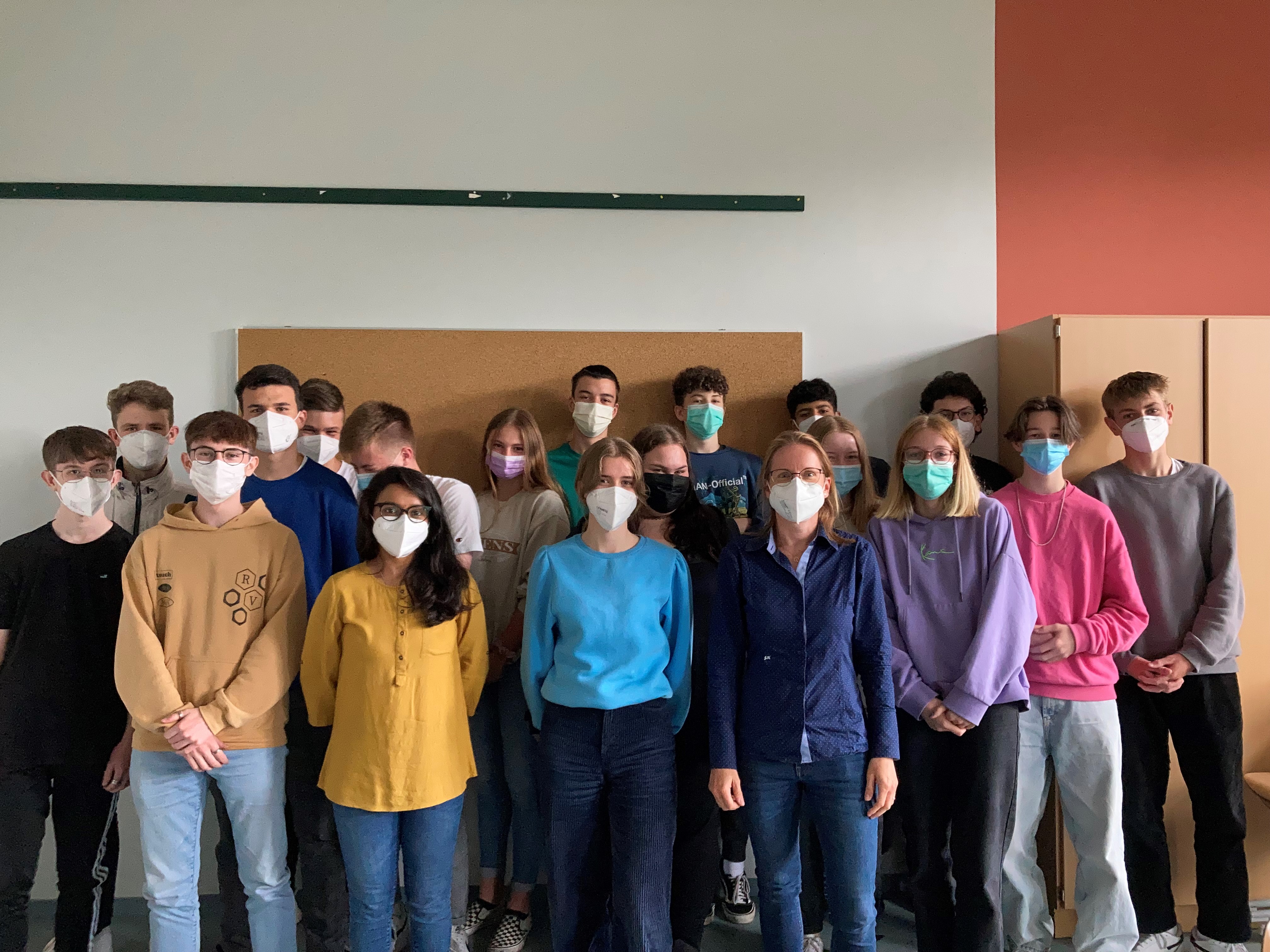India is mostly known as an overcrowded, underdeveloped, and dirty country. Many people think the people are uneducated and poor, but in fact, they are highly underrated. That’s what an Indian woman, Bindu, who visited our English class (by the way – 10c), told us. She presented India to us and explained what it is like to live there. She came to Germany five years ago and works at Brose. Bindu was born and used to live in Karnataka, which is in the south-western state Mysuru where people predominantly speak the regional language Kannada – no, not Canadian. 😉
Have you ever thought about the meaning of the red dot between an Indian woman’s eyebrows? Bindu told us that it is called “Bindi” and it stands for the place where the creation of cosmos started. Wearing it means that you’re blessed and these days everybody can wear it.
Can you imagine moving to a foreign country without knowing the language and being completely on your own? That is exactly what Bindu did. She had lived in India for 23 years before she decided to move to Germany doing her master for automotive production. So today she works at Brose as an industrial engineer. “It was one of the hardest decisions ever in my life, she said because she didn’t know what to expect. “But I‘m happy.“ And the class wanted to know: “What were your exact reasons for coming to Germany.“ Her answer was: “I just wanted to learn more about engineering and go to another country to improve,” which was very surprising to most of us because we thought that it had to do something with the lifestyle and the poverty which is a big problem in many parts of India. So, things turned out to be completely different as assumed.
Then she started talking about her life and childhood in India. Most of us were just fascinated because it turned out to be completely different to Germany. Bind told us that life in India is really family-based. From her childhood to teenage years, all the related families lived together in a huge house. Afterwards the families split up and each one lived in separate houses. Most of us would have expected humble conditions in slums or very small houses.
Another prejudice that most of us had was that arranged marriages are in general a negative issue and that most Indian people are unhappy with the situation. However, Bindu convinced us of the opposite because for her and her family this way of marriage is an important and positive part of their culture. Bindu approves of arranged marriages because she likes the idea that her parents are searching for a suitable partner for her. Furthermore, it is still her decision who she’s going to marry or not. Then she showed us some pictures of her brother’s arranged marriage which gave us a close view of Indian wedding traditions. “He’s still happily married” Bindu said. This really changed our point of view on that topic.
Thanks to Bindu for her time. We were so glad to have her and thank her for giving us a detailed view of India in such an interesting, Indian English (seriously – it sounds so nice!) way.
Article written by 10c



